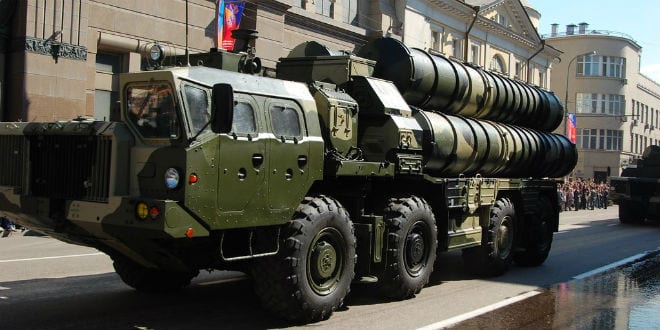Iran is set to sign a contract next week for delivery of Russian S-300 missiles, the Iranian Defense Ministry announced earlier this week, bringing the Islamic Republic closer to acquiring advanced air defense capabilities.
The S-300, first deployed at the height of the Cold War in 1979, can engage multiple aircraft and ballistic missiles up to 300 kilometers (186 miles) away. It is considered one of the best air defense systems in the world. Russia said it had cancelled an earlier contract with Iran in 2010 under pressure from the West, but President Vladimir Putin reversed the self-imposed ban when an interim nuclear agreement was reached between the P5+1 powers and Tehran in April.
In June, Russian state arms producer Almaz-Antey announced it would supply Iran with a modernized version of the missile once a commercial contract was reached. Iranian Defense Minister Hossein Dehghan was quoted by the Iranian Fars news agency, saying, “The text of the contract is ready and our friends will go to Russia next week to sign the contract.”
The announcement came just one day after Iranian Foreign Minister Mohammad Javad Zarif visited Moscow to discuss the civil war in Syria, in which both Iran and Russia support the Assad regime.
Dehghan said Iran had originally planned to purchase three “battalions” of S-300s, but later increased its order to four. It is unclear how many missile launchers are included in a battalion, which is a military unit that can vary in size from country to country, depending also on the equipment and role of the battalion.
In addition to the S-300 systems, Dehghan also said Iran was in negotiations with Russia to buy fighter jets, likely to replace its aging fleet of mostly American-made planes, especially since tensions between the two countries prevent Tehran from purchasing replacement parts.
On Tuesday, Iranian Vice President Masoumeh Ebtekar told the BBC Iran would continue to support those “threatened by the policies of the Zionist regime,” such as Hezbollah or the Assad regime. She maintained Iran’s right to defend itself, stating the Islamic Republic had no intention of controlling the region.
Ebtekar also revealed that Iran attempted to resolve the current crisis in Yemen by establishing back-channel communications with Saudi Arabia on the matter. Iran supports the Houthi rebels in Yemen, while Saudi Arabia heads the international coalition to stop the rebels and restore the exiled Yemeni government.



